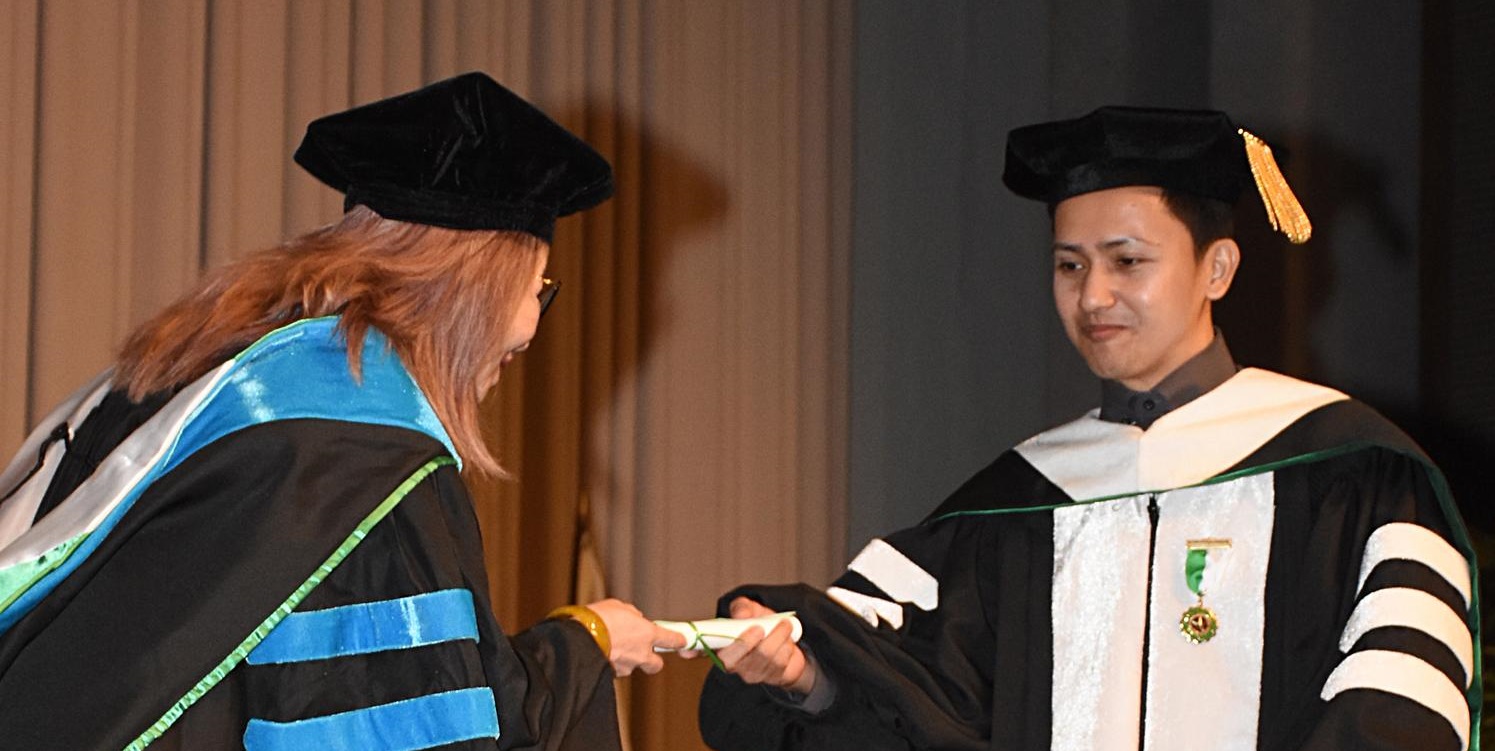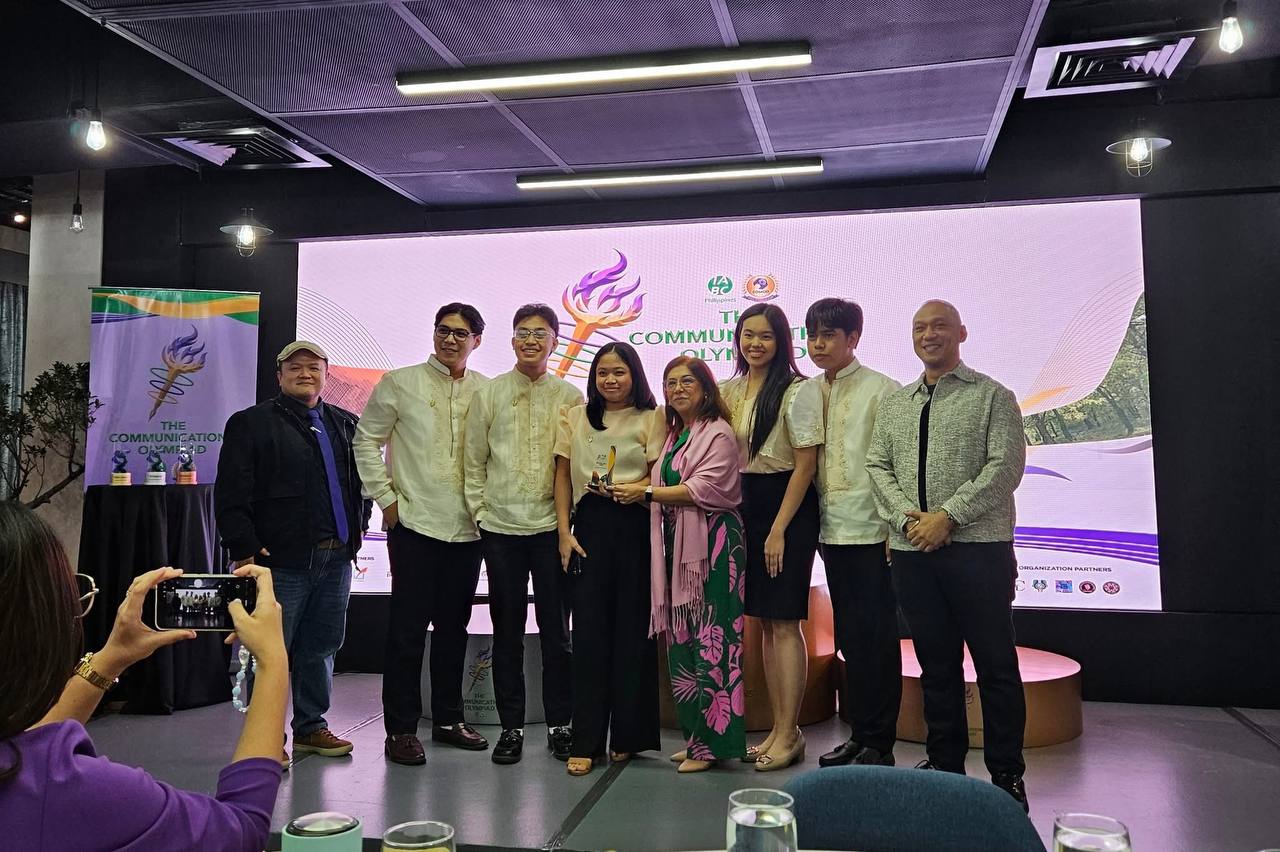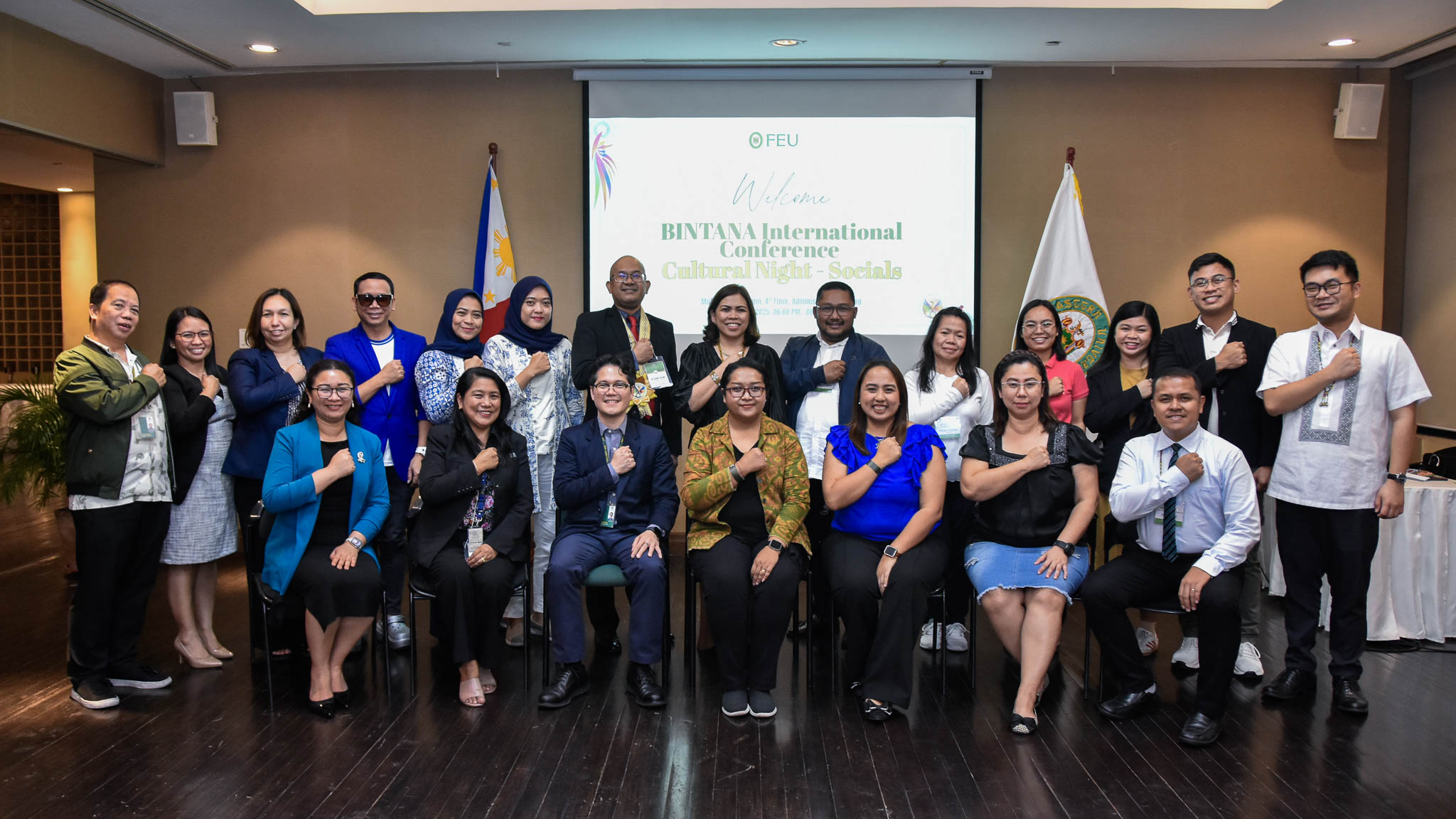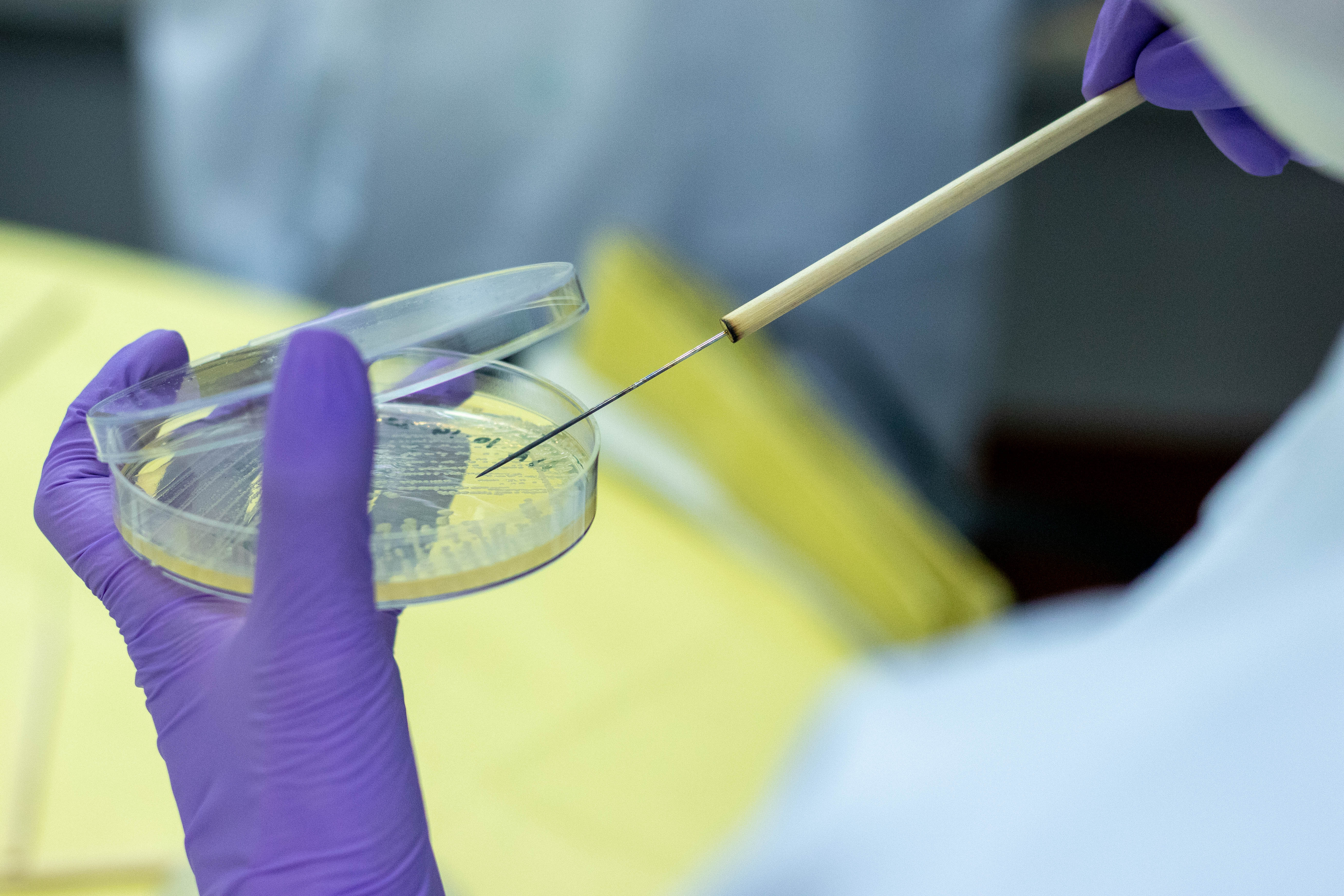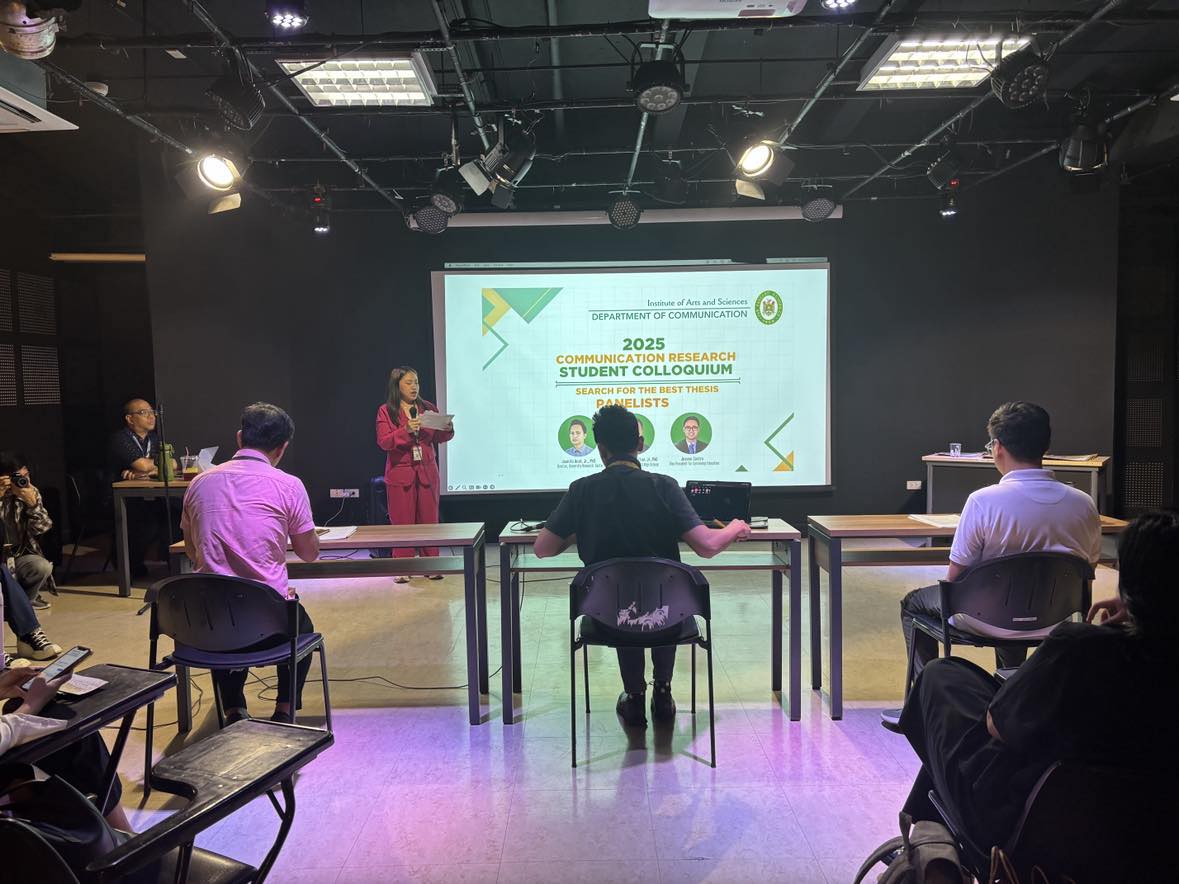EIGHT FACULTY members of Far Eastern University (FEU) earned their doctorate degree recently.
***
Juanito “Yuan” Anot, Jr.
Yuan said a post-graduate degree is important for learning facilitators in higher education institutions like FEU.
“Add to this their publication [in reputable journals] or even post-doctoral studies,” he said. “These qualifications, [highlighted by the teachers’ right attitude and performance], improve the confidence and trust of their students in them.”
Their educational background and experience contribute to the students’ viewpoint being rooted in society as these impact themselves, Yuan believed. He hoped he and his colleagues would enable their students to advance community interests.
“Our doctorate degree is useful especially for specific courses which we are teaching—for example critical theory or migration. We incorporate our experience into theoretical concepts [for our students’ comprehension],” said Yuan.
Now he has joined the University Research Center (URC) in strengthening the culture of research at FEU.
“We advance priority research initiatives,” said Yuan. “Also, I would want us to engage in grassroots initiatives, where the faculty members develop their own proposals and projects and URS to support these.”
Shifting the conversation to administrative functions, he said he always aimed for intellectual humility.
“Positions are temporary, so we must show kindness to everyone,” said Yuan.
He also strives for work-life balance.
“I regulate even my social media use. Apps, which I have downloaded automatically shut me out from certain platforms when I have maxed out my time. I jog and read and spend meaningful time with family,” said Yuan.
Benjamin “Benjie” Bolo, Jr.
“Like many biology majors, I wanted to go to medical school. But this plan did not materialize, so I pursued my research interests,” said Benjie.
Benjie’s research skills were honed when he was a biology major at Mariano Marcos State University (MMSU) in Batac, Ilocos Norte; so were his leadership skills. He was vice president for all freshmen and sophomores in his university.
“The research-orientation at MMSU was fulfilling. It provided a good training ground for researchers like me,” he said.
While a graduate student at DLSU, he researched on sensing activity of probiotic strains, in vitro efficacy of commercial generic and branded products of amoxicillin, isolation and conventional identification of microorganisms, and application of effective microorganism product on the mixture of waste fruit peels.
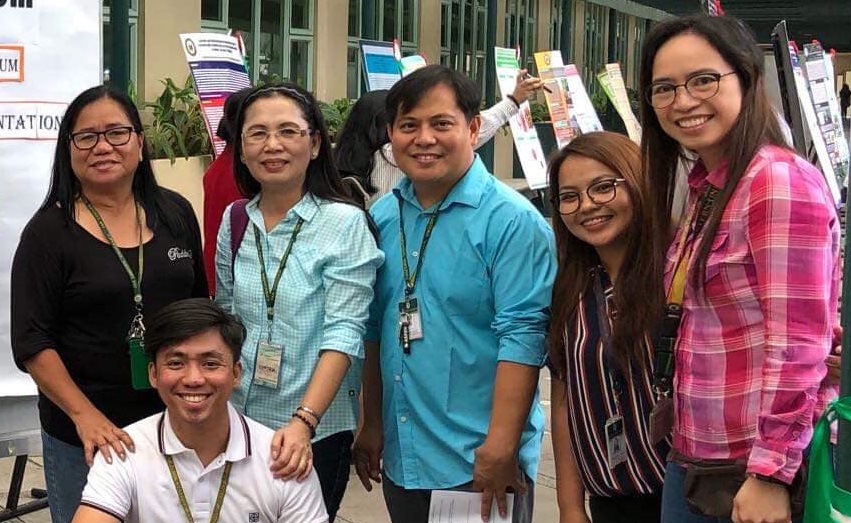
Benjie also studied clinical cases of hypertensive nephropathy, diabetic nephropathy, analgesic nephropathy, and pyelonephritis, as well as ethical principles and perception of selling human body organs for transplantation. Moreover, he reported on the Tamaraw, or Bubalus mindorensis in Occidental Mindoro.
About 15 years after joining FEU, Benjie started his two-year stint as visiting research associate at the Environmental and Engineering Department of University of Houston (UH) in Texas, USA. His research focus was “Metabolomic Profiling of CO₂ Sequestrating Microbial Isolates Using Gas Chromatography (GC)-Mass Spectrophotometry (MS).”
“I engaged with researchers [from different cultures and ethnicities] at UH,” said Benjie. “We worked on environmental microorganisms, which have the ability to sequester carbon dioxide [CO₂].” This research, Benjie and his colleagues at UH aimed, could help mitigate climate change as pathogens tend to release CO₂.
Everyday Benjie drove his car from his residence in Houston to the laboratories at UH. In the labs he prepared media and cultivated microorganisms. He also attended seminars and took turns with other researchers in their weekly presentations.
Previously he showed the project concept of “Biotechnology to Bioentrepreneurship” in Atlanta, Georgia. He also presented papers at Kasetsart University, Thailand and National University of Singapore.
“I was granted continuing education benefits by FEU and DOST for my [post-graduate studies]. The university is very generous,” said Benjie. “I want to continue to inspire students here.”
Maria Arlene “Bam” Disimulacion
Bam is a Certified Event Educator. It is no surprise that she got this certification from the Asia Pacific Institute for Events Management, UK, because she has always been interested in business and tourism.
“My previous employment records were all aligned with my educational degrees and interests,” said Bam.
These interests began during her undergraduate years at the University of the Philippines in Diliman where she actively participated in the activities and events of UP Junior Finance Administration, UP College of Business Administration Registration Corps, Pan Xenia Fraternity Ladies Corps.
“I also took up additional social science electives in anthropology, sociology, psychology, philosophy, and history to complement my business classes,” said Bam.
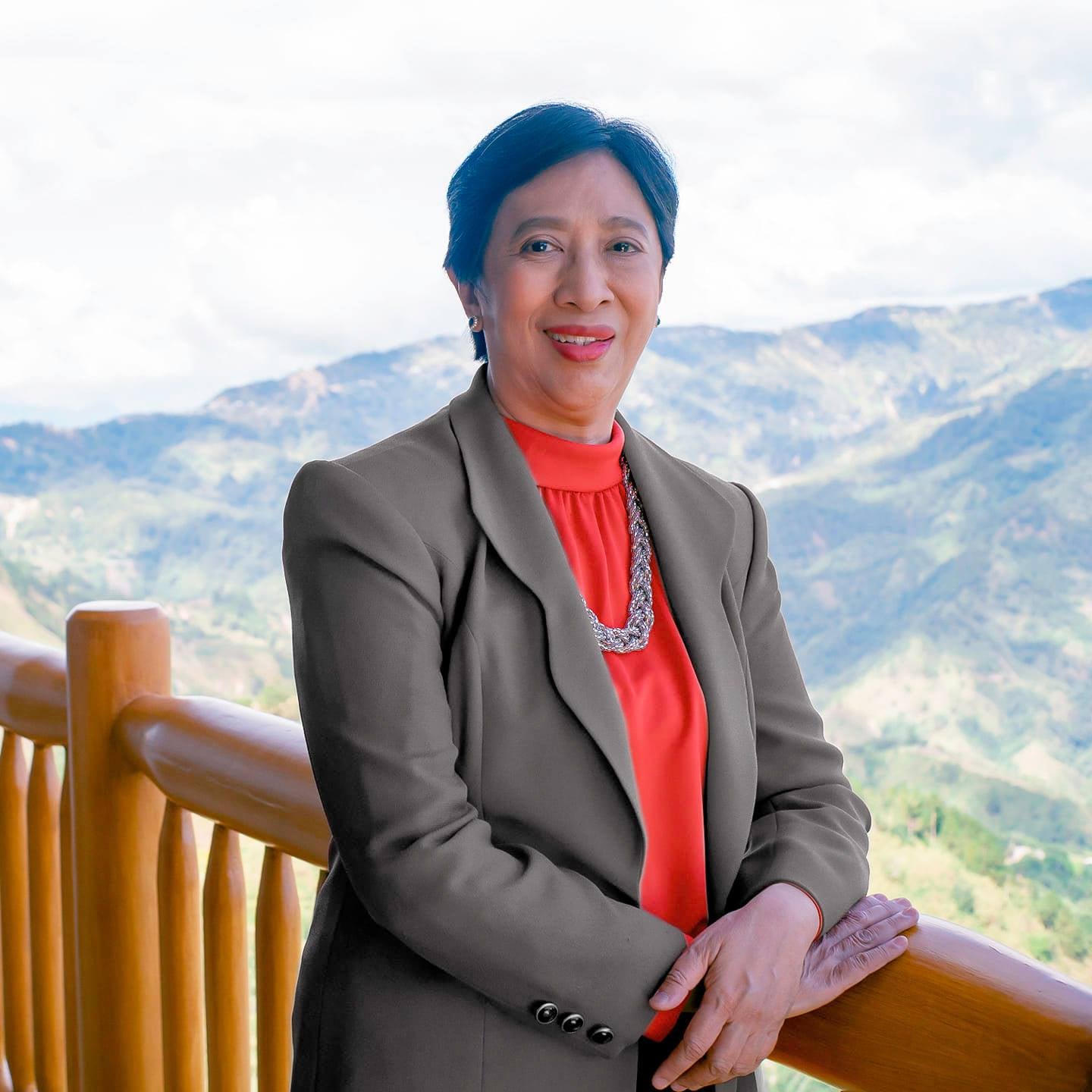
She is first to admit that she is a nerd.
“I enjoy learning. I enjoy being in the library. All my students in FEU know where to find me—at the library. It was always fun to talk [and even argue] about school subjects,” said Bam.
Bam acknowledged the privilege to be a faculty scholar for her Master in Business Administration in FEU Makati. After which she enrolled in the PhD in International Hospitality and Tourism Management program at Lyceum of the Philippines University-Batangas during the COVID-19 pandemic.
“Our classes and activities [webinars, presentations, reports], and comprehensive exams were all held online. I was pleased to join students from different places [Bicol, Mindanao, Metro Manila, China] who shared their insights on our topics. Our professors were experts in their respective areas. Aside from lessons learned, I am truly grateful to have met wonderful people [from all these schools] who continue to be my friends and mentors,” she said.
Prior to FEU, Bam conducted training on entrepreneurship, corporate communications, strategic management, and events management here and abroad. Then she was invited to teach business and tourism courses for the Institute of Accounts, Business and Finance, in preparation for the establishment of the Institute of Tourism and Hotel Management (ITHM). Since then, she has belonged to the ITHM group of experts and industry practitioners.
“My research areas are meetings, incentives, conventions, and exhibitions (MICE) tourism, sustainability, creative tourism, niche tourism, and community-based tourism,” said Bam.
Mary Victory “Mary” Gutierrez
Mary’s page on the website of Helmholtz-Institut für Pharmazeutische Forschung Saarland (Helmholtz Institute for Pharmaceutical Research Saarland) or HIPS, Germany showed that she “obtained her Bachelor of Science in Biology at Saint Louis University, Baguio. She completed her [masteral] degree at the University of Santo Tomas, Manila, with focus on allelopathic effects of allelochemicals.”
“She is currently affiliated with [FEU where she devotes her time working as an academician and a researcher]. She pursued her doctoral degree at [DLSU] as a recipient of [a scholarship from the Commission on Higher Education]. She was awarded with a research grant by FEU, giving her the opportunity to work on her passion for myxobacterial research at Helmholtz [and conducted] her dissertation for her PhD,” added the webpage.
“We were allowed to do research on our own. We explored scientific study independently,” said Mary.
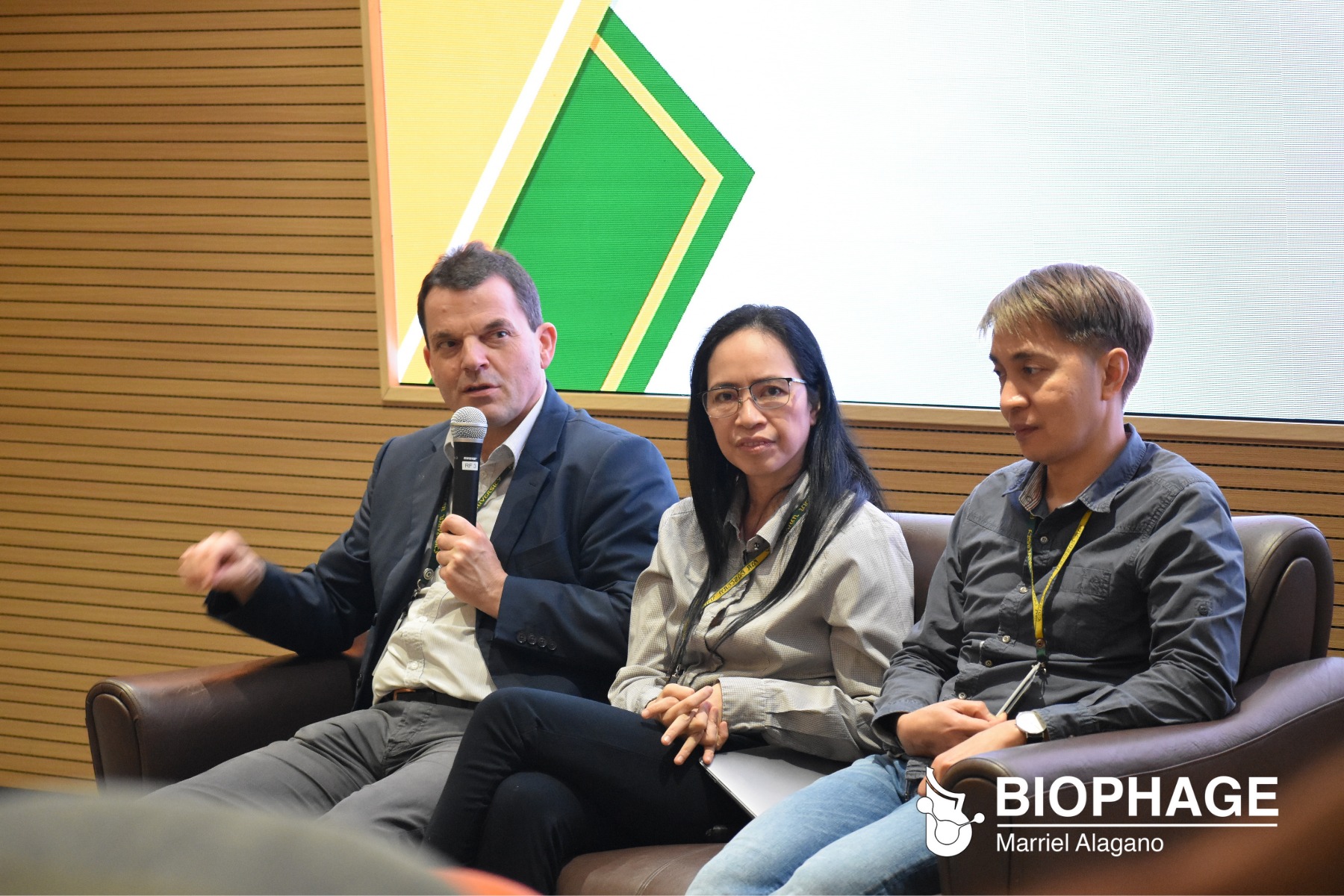
“My colleagues at HIPS are very disciplined. They are straightforward but never offensive,” she said.
While in HIPS, however, it was not all about work 24/7 because Mary and her associates also engaged in gastronomic bonding.
“We have a pantry where we cook and prepare food. A big fridge is used to store meals, which we heat up later,” she said.
Mary bravely embraced her solitary life in Germany—away from her husband and children—for one whole year.
“The most challenging adjustment that I made concerned food. Rice was expensive, so I learned to get used to a diet of croissants, pastas, and pizzas,” she said. She had been looking forward to working at HIPS, so this gustatory challenge was met soon enough.
“The technology and resources are so advanced and readily available,” said Mary. “For instance, if researchers like me need specific chemicals for our study, HIPS provide them for us the next day.”
Aware of the current problems in medicine, Mary—now equipped with her experience and work at HIPS—intends to continue contributing to the research on how bacteria, fungi, and cancer cells could be rendered receptive to drugs.
Ma. Theresa “Tess” Salinda
“Nursing is [my mother’s choice]. I just fulfilled her wish. But when I started having my clinical exposure, it opened my eyes [to] so many people who need help. That’s when I started to love nursing,” said Tess.
She considered college as just a race, where one just needed to survive to graduate. What was good in the undergraduate was being unafraid to take risks because clinical instructors were around.
“Graduate school is not easy because other than survival, you need to pass the requirements on time while also working professionally. Graduate school gives opportunities for other linkages,” said Tess.
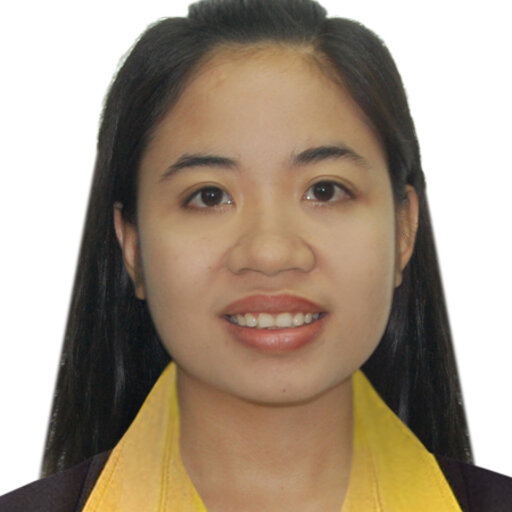
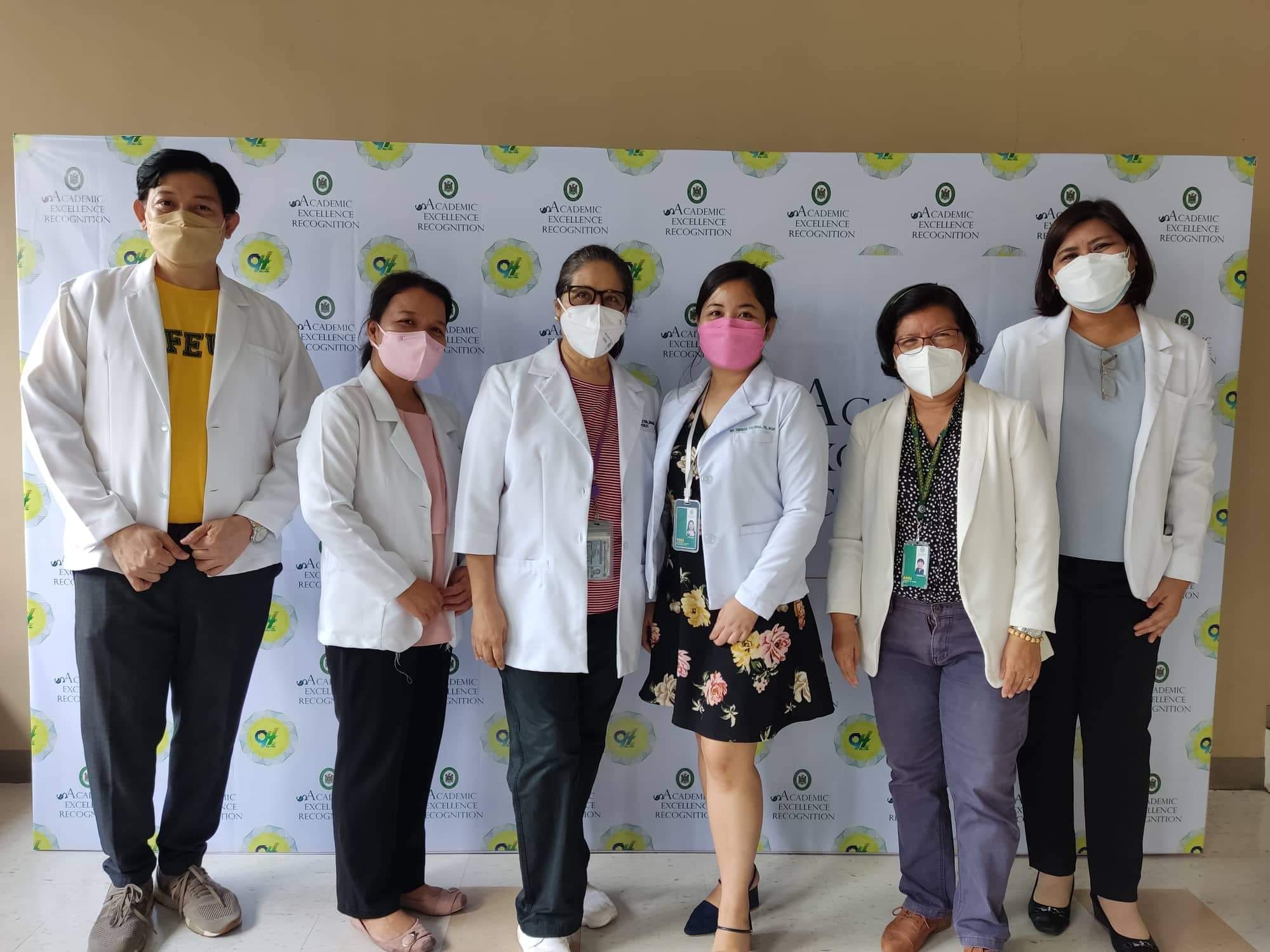
Her fondest memory of formal education was when she went to a community to conduct health teaching. She overcame her shyness quickly because she needed to engage with people.
“The most challenging part during college was having classes and duty in the hospital at about the same time when we didn’t have enough sleep. For graduate study, it’s time and finances because we need to pay our tuition and pay the bills,” said Tess.
She plans to propose projects, mostly to URC because she does more research now. Her research is mostly on transcultural nursing, where she creates and tests models for cross cultural competency for Filipino nurses in the health care setting.
“I also love community engagement. It’s my dream to create projects for the elderly and for children,” said Tess. Her grandparents raised her, and it is for this reason that she occasionally gives Noche Buena food packs for the elderly. She also started a project a few years back to help children in orphanages. She chose to celebrate her graduation at the Missionary Charity of Aparri, Cagayan.
Meanwhile she espouses lifelong learning.
“I always believe in continuous education. We must continue to learn new things for us to grow. We must also learn to embrace challenges as these will make us stronger,” said Tess. In the classroom setting, she tries to improve instruction by being culturally sensitive to the needs of her students. She has been in the academe for almost eight years now.
“What I have observed is that showing sincerity to connect with them and respecting differences can lessen the gap between the us,” said Tess.
***
The three other FEU faculty, who earned their doctorate, are Reynold Agnes, Kerfelcel Retoriano, and Moira Uy.
